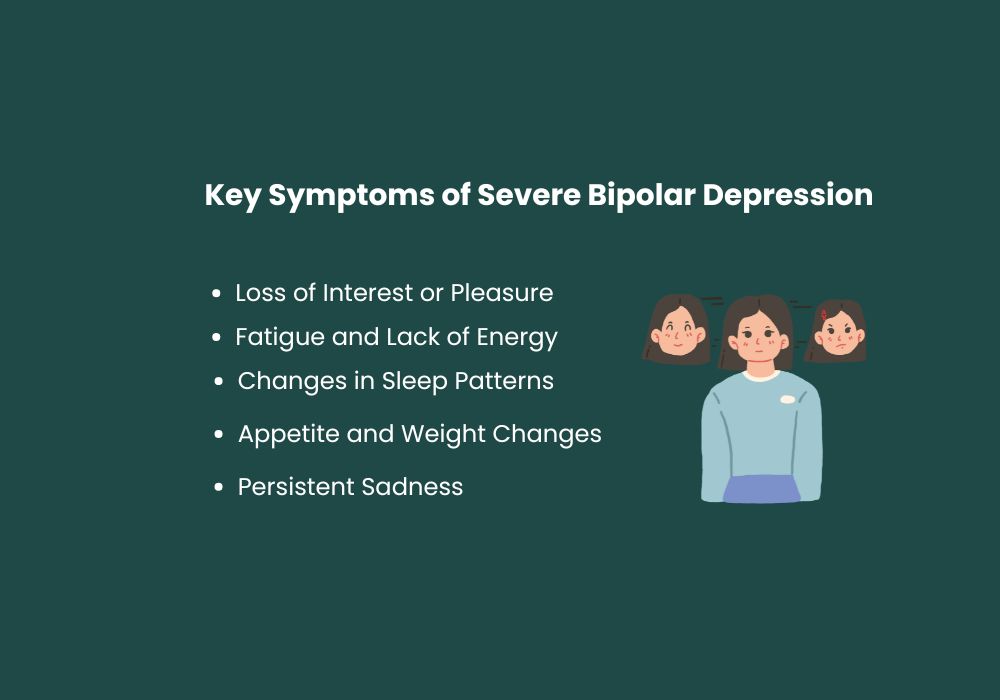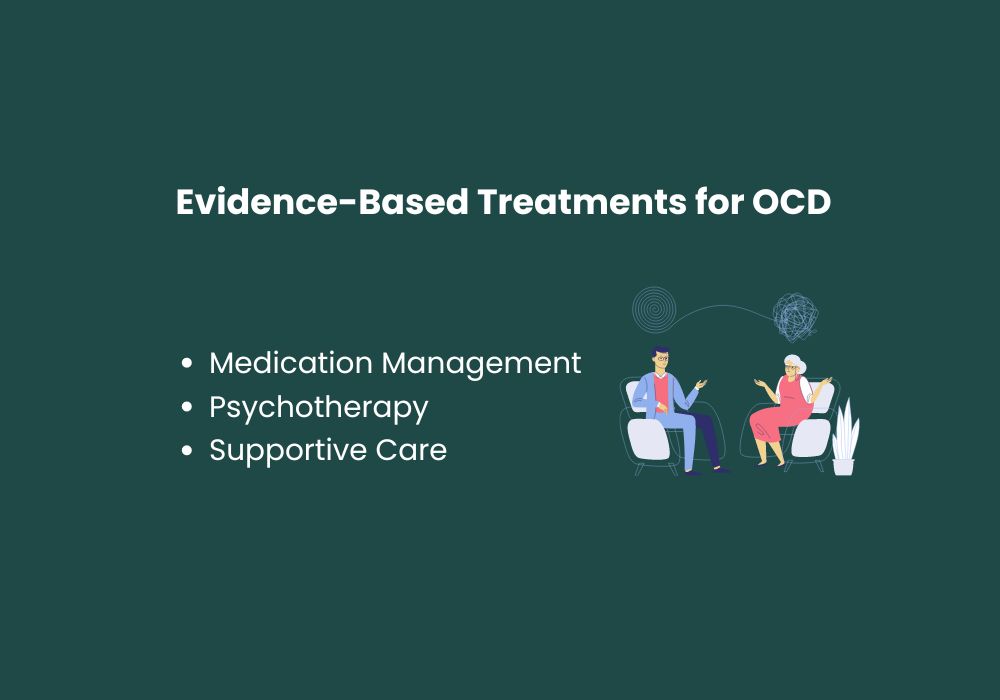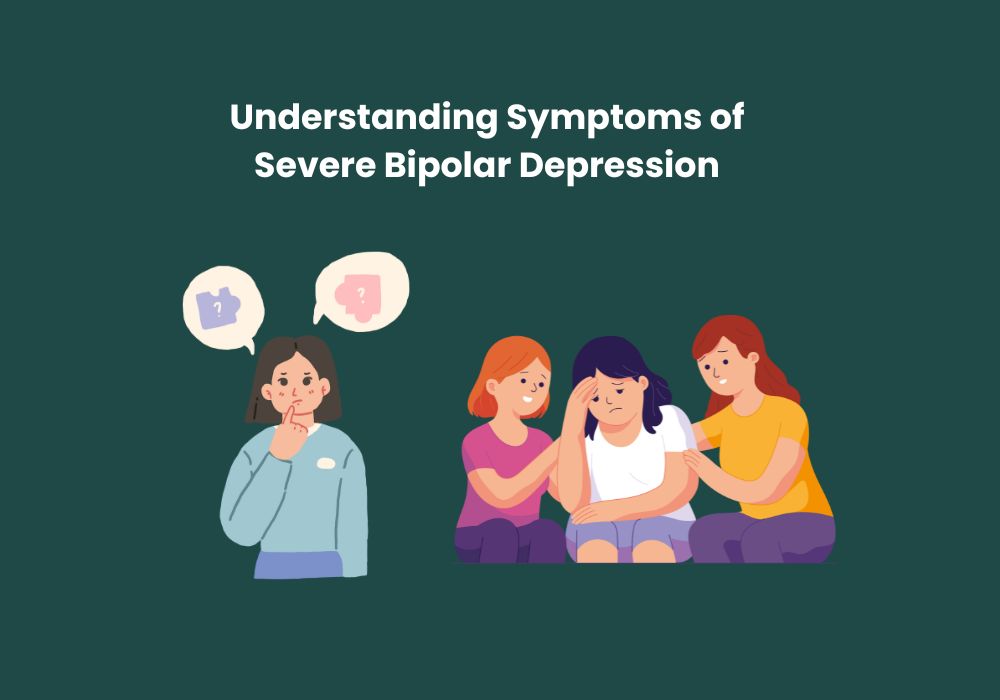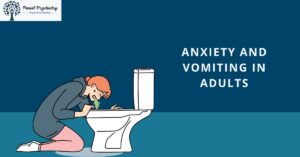Bipolar disorder is a complex mental health condition characterized by extreme mood swings, including manic and depressive episodes. Among these, severe bipolar depression can be particularly challenging to manage and understand.
At Peniel Psychiatry, we aim to provide comprehensive information and compassionate care for those affected by this condition.
Before diving into this blog post, check out our previous one on Understanding the Symptoms of Bipolar Depression. Bipolar depression is a stage of bipolar disorder marked by intense depressive episodes that can greatly affect a person’s daily life.
What is Severe Bipolar Depression?
Severe bipolar depression is a phase of bipolar disorder marked by intense depressive symptoms. Unlike typical depression, bipolar depression is part of a broader spectrum of mood instability, including periods of mania or hypomania.
Key Symptoms of Severe Bipolar Depression

- Persistent Sadness: A deep, unshakeable sense of sadness or hopelessness that pervades daily life.
- Loss of Interest or Pleasure: A significant decrease in interest or pleasure in activities once enjoyed, including hobbies, social interactions, and sex.
- Fatigue and Lack of Energy: Chronic fatigue that makes even simple tasks feel exhausting. Individuals may struggle to get out of bed or engage in their daily routines.
- Changes in Sleep Patterns: Insomnia or hypersomnia (excessive sleeping). Sleep disturbances are common, with individuals experiencing trouble falling asleep or staying asleep.
- Appetite and Weight Changes: Noticeable changes in appetite can lead to significant weight loss or gain. Some may experience a lack of appetite, while others may turn to food for comfort.
Feelings of Worthlessness or Guilt
Intense feelings of worthlessness, guilt, or self-blame are often disproportionate to the situation.
Problems with concentration, memory, and decision-making. Tasks that require focus can become overwhelming.
Differences from Regular Depression
While many symptoms of severe bipolar depression overlap with major depressive disorder, the presence of manic or hypomanic episodes distinguishes bipolar disorder. Manic episodes are characterized by elevated mood, increased energy, and risky behaviors, which may alternate with periods of severe depression.
Evidence-Based Treatments for OCD

Recognizing the symptoms of severe bipolar depression is crucial for timely intervention. At Peniel Psychiatry, we offer specialized care for bipolar disorder, including:
- Medication Management: Tailored treatment plans involving mood stabilizers, antipsychotics, and antidepressants to manage symptoms effectively.
- Psychotherapy: Cognitive-behavioral therapy (CBT) and other evidence-based approaches help individuals cope with mood swings and develop healthier thought patterns.
- Supportive Care: Providing a supportive environment where patients can discuss their experiences and challenges.
Frequently Asked Questions
What makes bipolar depression different from regular depression?
Bipolar depression includes depressive episodes along with manic or hypomanic phases, whereas regular depression doesn’t involve these mood highs.
What are the most common symptoms of severe bipolar depression?
Key symptoms include persistent sadness, fatigue, sleep changes, appetite issues, low self-worth, and difficulty concentrating.
Can bipolar depression be treated without medication?
While therapy helps, severe bipolar depression often requires a combination of medication and psychotherapy for adequate symptom control.
How long do depressive episodes in bipolar disorder usually last?
Episodes can last for weeks or even months, depending on the individual and whether they are receiving proper treatment.
Is it possible to live an everyday life with severe bipolar depression?
Yes, with the right treatment plan comprising medication, therapy, and ongoing support, many people can manage their symptoms and lead fulfilling lives.
Conclusion
Severe bipolar depression is a debilitating condition that requires comprehensive treatment and support. At Peniel Psychiatry, we are dedicated to helping individuals navigate the complexities of bipolar disorder and achieve a better quality of life.
If you or a loved one is experiencing symptoms of severe bipolar depression, reach out to our team for compassionate and expert care.




